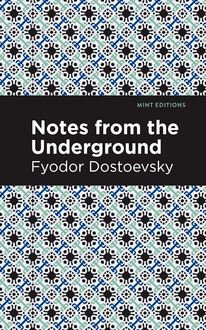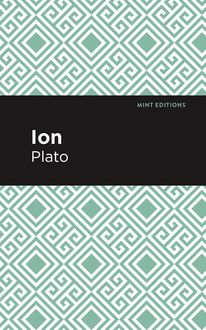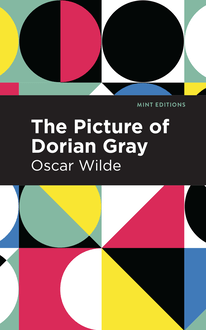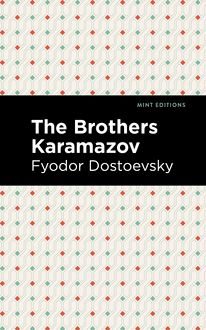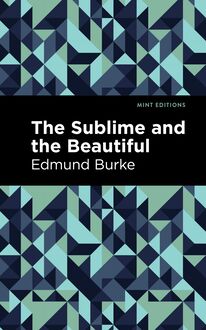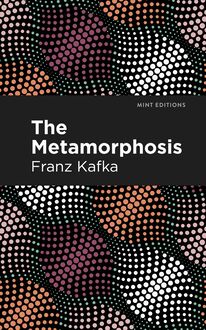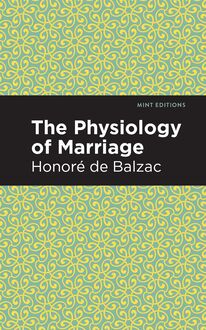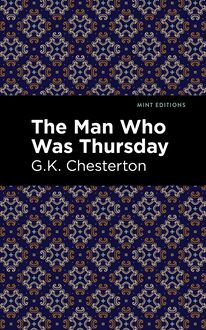-
 Univers
Univers
-
 Ebooks
Ebooks
-
 Livres audio
Livres audio
-
 Presse
Presse
-
 Podcasts
Podcasts
-
 BD
BD
-
 Documents
Documents
-
- Cours
- Révisions
- Ressources pédagogiques
- Sciences de l’éducation
- Manuels scolaires
- Langues
- Travaux de classe
- Annales de BEP
- Etudes supérieures
- Maternelle et primaire
- Fiches de lecture
- Orientation scolaire
- Méthodologie
- Corrigés de devoir
- Annales d’examens et concours
- Annales du bac
- Annales du brevet
- Rapports de stage
La lecture à portée de main
Vous pourrez modifier la taille du texte de cet ouvrage
Découvre YouScribe en t'inscrivant gratuitement
Je m'inscrisDécouvre YouScribe en t'inscrivant gratuitement
Je m'inscrisEn savoir plus
Vous pourrez modifier la taille du texte de cet ouvrage
En savoir plus

Description
The Physiology of Marriage (1829) is a book length essay by French writer Honoré de Balzac. Written from the point of view of an author who has overheard scandalous conversations between two women, The Physiology of Marriage is both a critique of the institution of marriage and a satirical attempt to scientifically explain the cause and frequency of marital infidelity. The essay was an early success for Balzac, gaining him a reputation as a talented writer and creative critic of contemporary French society.
The essay consists of a series of meditations that approach marriage through a variety of scientific, philosophical, and anecdotal methods. Arguing that marriage is an institution that runs counter to human nature, the author uses questionable mathematics to calculate the number of married women in France who are likely to seek out affairs in order to feel a passion denied to them. Describing the likely signs of marital infidelity—standoffishness, a change in dress, lack of romance—he claims that French men have grown far too accepting of their wives’ affairs. Rather than reject the institution altogether—he sees it as integral to upholding the social order—the author suggests that young women be allowed a certain amount of freedom to explore their romantic inclinations and to prepare themselves for the banality of married life. The Physiology of Marriage finds satire in treating seriously and scientifically the often hidden and always complex matters of the heart, as well as through its suggestion that women, not men, are to blame for the proliferation of infidelity in France.
With a beautifully designed cover and professionally typeset manuscript, this edition of Honoré de Balzac’s The Physiology of Marriage is a classic of French literature reimagined for modern readers.
Sujets
Informations
| Publié par | Mint Editions |
| Date de parution | 01 décembre 2020 |
| Nombre de lectures | 1 |
| EAN13 | 9781513273297 |
| Langue | English |
| Poids de l'ouvrage | 2 Mo |
Informations légales : prix de location à la page 0,0500€. Cette information est donnée uniquement à titre indicatif conformément à la législation en vigueur.
Extrait
The Physiology of Marriage
Honoré de Balzac
The Physiology of Marriage was first published in 1829.
This edition published by Mint Editions 2021.
ISBN 9781513268293 | E-ISBN 9781513273297
Published by Mint Editions®
minteditionbooks.com
Publishing Director: Jennifer Newens
Design & Production: Rachel Lopez Metzger
Translation: Katharine Prescott Wormeley
Typesetting: Westchester Publishing Services
C ONTENTS I NTRODUCTION FIRST PART : A GENERAL CONSIDERATION Meditation 1: T HE S UBJECT Meditation 2: M ARRIAGE S TATISTICS Meditation 3: O F THE H ONEST W OMAN Meditation 4: O F THE V IRTUOUS W OMAN Meditation 5: O F THE P REDESTINED Meditation 6: O F B OARDING S CHOOLS Meditation 7: O F THE H ONEYMOON Meditation 8: O F THE F IRST S YMPTOMS Meditation 9: E PILOGUE SECOND PART : MEANS OF DEFENCE, INTERIOR AND EXTERIOR Meditation 10: A T REATISE ON M ARITAL P OLICY Meditation 11: I NSTRUCTION IN THE H OME Meditation 12: T HE H YGIENE OF M ARRIAGE Meditation 13: O F P ERSONAL M EASURES Meditation 14: O F A PARTMENTS Meditation 15: O F THE C USTOM H OUSE Meditation 16: T HE C HARTER OF M ARRIAGE Meditation 17: T HE T HEORY OF THE B ED Meditation 18: O F M ARITAL R EVOLUTIONS Meditation 19: O F THE L OVER Meditation 20: E SSAY ON P OLICE Meditation 21: T HE A RT OF R ETURNING H OME Meditation 22: O F C ATASTROPHES THIRD PART : RELATING TO CIVIL WAR Meditation 23: O F M ANIFESTOES Meditation 24: P RINCIPLES OF S TRATEGY Meditation 25: O F A LLIES Meditation 26: O F D IFFERENT W EAPONS Meditation 27: O F THE L AST S YMPTOMS Meditation 28: O F C OMPENSATIONS Meditation 29: O F C ONJUGAL P EACE Meditation 30: C ONCLUSION P OSTSCRIPT
I NTRODUCTION
M arriage is not an institution of nature. The family in the east is entirely different from the family in the west. Man is the servant of nature, and the institutions of society are grafts, not spontaneous growths of nature. Laws are made to suit manners, and manners vary.
“Marriage must therefore undergo the gradual development towards perfection to which all human affairs submit.”
These words, pronounced in the presence of the Conseil d’Etat by Napoleon during the discussion of the civil code, produced a profound impression upon the author of this book; and perhaps unconsciously he received the suggestion of this work, which he now presents to the public. And indeed at the period during which, while still in his youth, he studied French law, the word adultery made a singular impression upon him. Taking, as it did, a prominent place in the code, this word never occurred to his mind without conjuring up its mournful train of consequences. Tears, shame, hatred, terror, secret crime, bloody wars, families without a head, and social misery rose like a sudden line of phantoms before him when he read the solemn word adultery ! Later on, when he became acquainted with the most cultivated circles of society, the author perceived that the rigor of marriage laws was very generally modified by adultery. He found that the number of unhappy homes was larger than that of happy marriages. In fact, he was the first to notice that of all human sciences that which relates to marriage was the least progressive. But this was the observation of a young man; and with him, as with so many others, this thought, like a pebble flung into the bosom of a lake, was lost in the abyss of his tumultuous thoughts. Nevertheless, in spite of himself the author was compelled to investigate, and eventually there was gathered within his mind, little by little, a swarm of conclusions, more or less just, on the subject of married life. Works like the present one are formed in the mind of the author with as much mystery as that with which truffles grow on the scented plains of Perigord. Out of the primitive and holy horror which adultery caused him and the investigation which he had thoughtlessly made, there was born one morning a trifling thought in which his ideas were formulated. This thought was really a satire upon marriage. It was as follows: A husband and wife found themselves in love with each other for the first time after twenty-seven years of marriage.
He amused himself with this little axiom and passed a whole week in delight, grouping around this harmless epigram the crowd of ideas which came to him unconsciously and which he was astonished to find that he possessed. His humorous mood yielded at last to the claims of serious investigation. Willing as he was to take a hint, the author returned to his habitual idleness. Nevertheless, this slight germ of science and of joke grew to perfection, unfostered, in the fields of thought. Each phase of the work which had been condemned by others took root and gathered strength, surviving like the slight branch of a tree which, flung upon the sand by a winter’s storm, finds itself covered at morning with white and fantastic icicles, produced by the caprices of nightly frosts. So the sketch lived on and became the starting point of myriad branching moralizations. It was like a polypus which multiplies itself by generation. The feelings of youth, the observations which a favorable opportunity led him to make, were verified in the most trifling events of his after life. Soon this mass of ideas became harmonized, took life, seemed, as it were, to become a living individual and moved in the midst of those domains of fancy, where the soul loves to give full rein to its wild creations. Amid all the distractions of the world and of life, the author always heard a voice ringing in his ears and mockingly revealing the secrets of things at the very moment he was watching a woman as she danced, smiled, or talked. Just as Mephistopheles pointed out to Faust in that terrific assemblage at the Brocken, faces full of frightful augury, so the author was conscious in the midst of the ball of a demon who would strike him on the shoulder with a familiar air and say to him: “Do you notice that enchanting smile? It is a grin of hatred.” And then the demon would strut about like one of the captains in the old comedies of Hardy. He would twitch the folds of a lace mantle and endeavor to make new the fretted tinsel and spangles of its former glory. And then like Rabelais he would burst into loud and unrestrainable laughter, and would trace on the street-wall a word which might serve as a pendant to the “Drink!” which was the only oracle obtainable from the heavenly bottle. This literary Trilby would often appear seated on piles of books, and with hooked fingers would point out with a grin of malice two yellow volumes whose title dazzled the eyes. Then when he saw he had attracted the author’s attention he spelt out, in a voice alluring as the tones of an harmonica, Physiology of Marriage ! But, almost always he appeared at night during my dreams, gentle as some fairy guardian; he tried by words of sweetness to subdue the soul which he would appropriate to himself. While he attracted, he also scoffed at me; supple as a woman’s mind, cruel as a tiger, his friendliness was more formidable than his hatred, for he never yielded a caress without also inflicting a wound. One night in particular he exhausted the resources of his sorceries, and crowned all by a last effort. He came, he sat on the edge of the bed like a young maiden full of love, who at first keeps silence but whose eyes sparkle, until at last her secret escapes her.
“This,” said he, “is a prospectus of a new life-buoy, by means of which one can pass over the Seine dry-footed. This other pamphlet is the report of the Institute on a garment by wearing which we can pass through flames without being burnt. Have you no scheme which can preserve marriage from the miseries of excessive cold and excessive heat? Listen to me! Here we have a book on the Art of preserving foods; on the Art of curing smoky chimneys; on the Art of making good mortar; on the Art of tying a cravat; on the Art of carving meat.”
In a moment he had named such a prodigious number of books that the author felt his head go round.
“These myriads of books,” says he, “have been devoured by readers; and while everybody does not build a house, and some grow hungry, and others have no cravat, or no fire to warm themselves at, yet everybody to some degree is married. But come look yonder.”
He waved his hand, and appeared to bring before me a distant ocean where all the books of the world were tossing up and down like agitated waves. The octodecimos bounded over the surface of the water. The octavos as they were flung on their way uttered a solemn sound, sank to the bottom, and only rose up again with great difficulty, hindered as they were by duodecimos and works of smaller bulk which floated on the top and melted into light foam. The furious billows were crowded with journalists, proof-readers, paper-makers, apprentices, printers’ agents, whose hands alone were seen mingled in the confusion among the books. Millions of voices rang in the air, like those of schoolboys bathing. Certain men were seen moving hither and thither in canoes, engaged in fishing out the books, and landing them on the shore in the presence of a tall man, of a disdainful air, dressed in black, and of a cold, unsympathetic expression. The whole scene represented the libraries and the public. The demon pointed out with his finger a skiff freshly decked out with all sails set and instead of a flag bearing a placard. Then with a peal of sardonic laughter, he read with a thundering voice: Physiology of Marriage .
The author fell in love, the devil left him in peace, for he would have undertaken more than he could handle if he had entered an apartment occupied by a woman. Several years passed without bringing other torments than those of love, and the author was inclined to believe that he had been healed of one infirmity by means of another which took its place. But one evening he found himself in a Parisian drawing-room where one of the men among the circle who stood r
-
 Univers
Univers
-
 Ebooks
Ebooks
-
 Livres audio
Livres audio
-
 Presse
Presse
-
 Podcasts
Podcasts
-
 BD
BD
-
 Documents
Documents
-
Jeunesse
-
Littérature
-
Ressources professionnelles
-
Santé et bien-être
-
Savoirs
-
Education
-
Loisirs et hobbies
-
Art, musique et cinéma
-
Actualité et débat de société
-
Jeunesse
-
Littérature
-
Ressources professionnelles
-
Santé et bien-être
-
Savoirs
-
Education
-
Loisirs et hobbies
-
Art, musique et cinéma
-
Actualité et débat de société
-
Actualités
-
Lifestyle
-
Presse jeunesse
-
Presse professionnelle
-
Pratique
-
Presse sportive
-
Presse internationale
-
Culture & Médias
-
Action et Aventures
-
Science-fiction et Fantasy
-
Société
-
Jeunesse
-
Littérature
-
Ressources professionnelles
-
Santé et bien-être
-
Savoirs
-
Education
-
Loisirs et hobbies
-
Art, musique et cinéma
-
Actualité et débat de société
- Cours
- Révisions
- Ressources pédagogiques
- Sciences de l’éducation
- Manuels scolaires
- Langues
- Travaux de classe
- Annales de BEP
- Etudes supérieures
- Maternelle et primaire
- Fiches de lecture
- Orientation scolaire
- Méthodologie
- Corrigés de devoir
- Annales d’examens et concours
- Annales du bac
- Annales du brevet
- Rapports de stage
